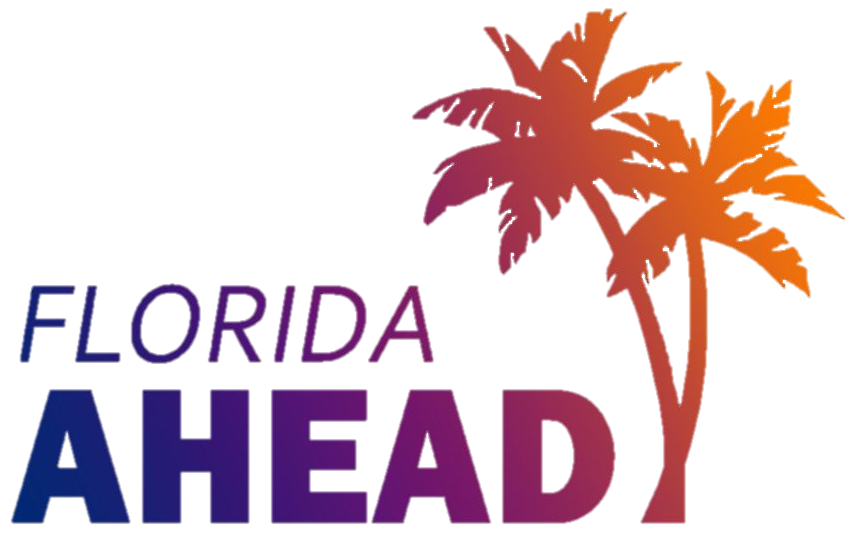Registration
Registration is open and the links to register have been sent t your email.
Schedule
Thursday, October 9, 2025
- 1:00 PM-1:10 PM – Welcome and Opening Remarks
- 1:10 PM-2:00 PM – Session 1
- Session 1: Bridging Barriers: Partnerships that Enhance Testing Accommodations – Kimberly Hunter & Martha Wong, FIU
Session 1: Abstract
As the demand for testing accommodations continues to rise, disability services offices must look beyond traditional structures to deliver efficient, reliable and student-centered testing experiences. This presentation explores how forming intentional partnerships across campuses can significantly enhance the operational capacity and quality of testing accommodations.
First, we will discuss how building a partnership with the university’s central testing center can expand access to trained proctors and secure testing environments. By aligning procedures and sharing resources, both units can improve service delivery while maintaining compliance with accessibility standards.
Next, we will highlight strategies for collaborating with faculty to ensure consistent communication regarding testing instructions and guidelines. Proactive outreach and standardized processes can reduce confusion, improve trust, and promote faculty engagement in the accommodation process. We will also explore the critical role of space management in addressing the ongoing challenge of limited testing space, especially during midterms and finals. Coordinated planning with space management teams can uncover temporary or underutilized spaces suitable for proctoring, alleviating lastminute pressures and reducing the risk of unmet accommodation needs.
Finally, we will share approaches for developing intentional, disability-informed training for proctoring staff. Emphasis will be placed on how training can empower staff to support students with varied access needs while maintaining test integrity.
Attendees will leave with practical frameworks to build and strengthen these partnerships at their own institutions. By prioritizing collaboration, disability services professionals can enhance operational efficiency, foster a more inclusive campus environment, and ultimately better support the academic success of students with disabilities.
- Session 1: Bridging Barriers: Partnerships that Enhance Testing Accommodations – Kimberly Hunter & Martha Wong, FIU
- 2:00 PM-2:10 PM – Break
- 2:10 PM-3:00 PM – Session 2
- Session 2: Partnering for Neurodivergent Success: Santa Fe College DRC and Learning Commons – Pamela Childers, Beth Roland, & Shade Sachs, Santa Fe College
Session 2: Abstract
This session highlights an innovative partnership between the Santa Fe College Disabilities Resource Center (DRC) and the Learning Commons focused on increasing accessibility and improving the sensory experience for neurodivergent students. Presenters—The DRC Coordinator, an autistic Access Specialist, and the Director of the Learning Commons—will share how the Spectrum of Success program has worked alongside Learning Commons staff to incorporate student feedback, particularly from autistic students, into the design of tutoring and coaching services.
Participants will learn how student surveys, listening sessions, and direct input have shaped both the physical environment and service practices within the Learning Commons. The session will also explore how ongoing collaboration has led to targeted training for peer tutors and academic coaches, sensory-friendly study spaces, and sustainable feedback loops that prioritize the student experience.
Attendees will leave with practical strategies for building collaborative, student-centered academic support models that foster greater access for neurodivergent learners.
- Session 2: Partnering for Neurodivergent Success: Santa Fe College DRC and Learning Commons – Pamela Childers, Beth Roland, & Shade Sachs, Santa Fe College
- 3:00 PM-3:10 PM – Break
- 3:10 PM-4:00 PM – Florida AHEAD Membership Meeting
Friday, October 10, 2025
- 9:00 AM-9:10 AM – Welcome
- 9:10 AM-10:00 AM – Session 3
- Session 3: Beyond Accommodations: Integrating Health & Wellness into Disability Services – Katherine Morgan & Kayla Smith, UF
Session 3: Abstract
In student life, there is a lot of focus on not just the student experience, but also their wellness. This session will explore the importance of integrating wellness practices within Disability Resource Centers. In this presentation, we’ll discuss why health & wellness is important for students with disabilities and how you can incorporate into your office through appointments, online, and physical space. Participants will also have the opportunity to exchange ideas and highlight initiatives from their own campuses, fostering collaboration and innovation in supporting student well-being.
- Session 3: Beyond Accommodations: Integrating Health & Wellness into Disability Services – Katherine Morgan & Kayla Smith, UF
- 10:00 AM-10:10 AM – Break
- 10:10 AM-11:00 AM – Session 4
- Session 4: Accommodated Testing and Testing Services Roundtable – Lisa Diekow, UF
Session 4: Abstract
Join this interactive roundtable session and engage in a conversation which explores the complexities and pressing trends in accommodated testing: evolving student needs, academic integrity, partnering with faculty, retention of staff, managing limited testing space availability and more.
- Session 4: Accommodated Testing and Testing Services Roundtable – Lisa Diekow, UF
- 11:00 AM-11:10 AM – Break
- 11:10 AM-12:00 PM – Session 5
- Session 5: Smarter Accessibility: Partnering with AI to Remove Barriers – Steven Kolberg, FSW
Session 5: Abstract
“Work smarter, not harder” is a common adage we often struggle to put into practice. This session explores practical applications of generative AI tools such as ChatGPT to support accessibility. Examples include producing alternative text for images, converting visuals into structured data, checking HTML for conformance, and rendering math into LaTeX and MathML.
Additional workflows can be developed by leveraging AI as a “personal programmer” to create simple applications for generating captions for audio and video, assisting with PDF remediation, and more.
Participants will also examine emerging uses of AI in accessibility, including the creation of tactile graphics for 3D printing and automated braille transcription. The session blends hands-on strategies with forward-looking perspectives, equipping attendees to integrate AI into their workflows and expand digital accessibility across education and professional contexts.
Learning outcomes:
- Identify practical AI tools that support accessibility workflows.
- List opportunities for AI assistance to support current accessibility efforts.
- Demonstrate AI-driven workflows to accomplish accessibility goals and needs.
- Design strategies to integrate AI into content creation and accessibility practices.
- Session 5: Smarter Accessibility: Partnering with AI to Remove Barriers – Steven Kolberg, FSW
